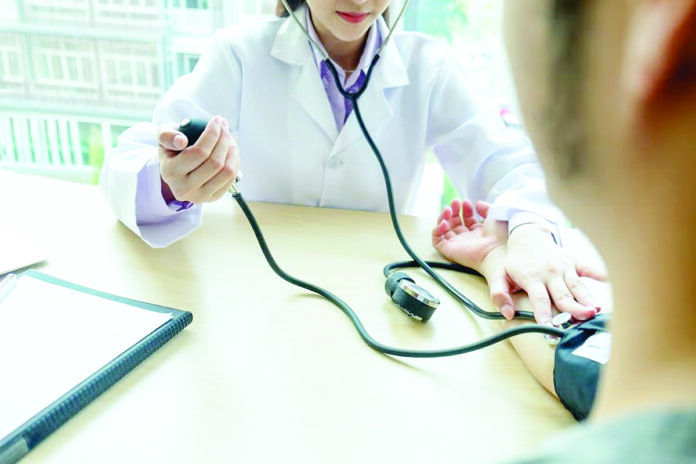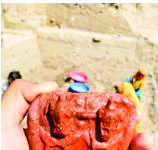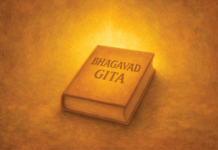When you neglect your vital organs but focus on your fit body looks, you eventually
become like a swanky car with a rundown battery and a worn-out motor.
The recent sudden deaths of young-andfit celebrities Shefali Jariwala 42, Sidharth Shukla 40, and Puneeth Rajkumar 46, and at least 22 young and middle-aged people in Hassan district of Karnataka, over the last 45 days, without any visible symptoms, reportedly due to heart attacks (myocardial infarction, MI), has highlighted the problem of premature sudden deaths.
A blockage in the coronary arteries that supply blood to the heart muscles is the usual cause of an MI (heart attack) in those above 35 years of age. In people younger than 35, an abnormal heart rhythm (arrhythmia) due to congenital (since birth) or genetic heart electrical system issues is often the cause of sudden cardiac arrest (the heart stops beating). If someone can’t revive you after your heart stops beating for any reason (cardiac arrest), sudden cardiac death follows. Sudden cardiac death affects males twice as often as it does females. It’s rare in children.
Many sudden deaths in young adults occur due to previously undiagnosed heart conditions. A blunt chest injury, often in sports, can trigger a fatal arrhythmia. Certain medications, tobacco products, alcohol, and recreational drugs can cause dangerous heart rhythms and sudden death. Autopsy of 66 persons in the age group 18-35 years, who died suddenly in Turkey, showed that death was due to cardiac causes in 87.9%, most of them due to MI.
As per the Cleveland Clinic, in the United States, more than 356,000 people have a cardiac arrest outside a hospital yearly, and only about 10% of them survive. Celebrities and many others focus on maintaining a fit appearance rather than on good health, often consuming high-protein energy drinks, steroids, and other drugs, indulging in unproven anti-aging treatments, and overstraining themselves in the gym and their career. They are often over-stressed chasing fame and riches on social media and in life’s rat race, and may have a history of stress-caused depression, sleep deprivation, smoking, and drug abuse. Just looking fit by cherry-picking fancy diets and exercise, are not enough for a long and healthy life.
BIOLOGICAL AGE MORE IMPORTANT THAN CHRONOLOGICAL AGE: This discussion about premature deaths is based on the chronological age, not the biological age. The age of your vital organs does not necessarily match your official age. Excess body fat (discussed in detail in an earlier article), sedentary lifestyle, stress, sleep deficit, pollution, and bad habits like smoking damage your vitals, whose age may be many years more than your official age. Sustainably maintaining good health and low body fat slows down the aging process.
This author’s biological age is 15 years less than his official age without any socalled ‘antiaging’ remedies like glutathione injections, collagen, astaxanthin, and resveratrol supplements. Healthy vital organs have three times the minimum capacity required. That is why one kidney and more than half a liver can be donated, and just one healthy lung is adequate. When you neglect your vital organs but focus on your fit body looks, you eventually become like a swanky car with a rundown battery and a worn-out motor.
LIFESTYLE AND HABITS: A sedentary lifestyle and types of exercise have been discussed in an earlier article on the obesity crisis. An active lifestyle promotes physical and mental wellbeing, and involves regular physical activity and movement, in contrast to a sedentary lifestyle characterized by prolonged sitting and inactivity. Everyone must move or walk after 30 minutes of continuous sitting. Regular exercise can reduce the risk of heart attacks by up to 40 percent. 150 minutes of moderateintensity or 75 minutes of vigorous physical activity per week, and maintaining a body mass index (BMI) of less than 25 and a waist-tohip ratio of less than 0.5 is recommended.
Body weight, blood pressure, pulse, glucose, and oxygen levels can be monitored daily at home, especially by those with chronic diseases. Other biological markers can be checked through routine health checks. Tobacco use (smoking, vaping, chewing, or snorting) increases the risk of cardiovascular disease two to threefold. More than a quarter of sudden cardiac death victims have high alcohol levels. Sponsored reports that moderate consumption of red wine benefits the heart are misleading. Scientific studies show that “no alcohol” is better than “moderate alcohol.” Sleeping pills, recreational and date rape drugs overdose can cause sudden death. A global analysis found that premature deaths could be prevented by reducing the consumption of Ultra-processed foods (UPF), since the proportion of protein shake-like UPFs in the diet consumed is directly related to the risk of premature deaths from all causes.
OFTEN IGNORED SIGNS OF A SILENT HEART ATTACK: Persistent fatigue, shortness of breath, during routine activities, and even after adequate rest, can be due to inadequate heart function. Pain or discomfort in the jaw, neck, back, or arms, without chest pain or a fleeting or intermittent mild chest discomfort, pressure, or tightness, unexplained nausea, vomiting, or a feeling of fullness, can be associated with silent heart attacks, especially when not linked to meals. Feeling lightheaded or dizzy, especially when standing up suddenly, can be a sign of reduced blood flow to the brain due to heart issues. Sudden cold sweats (sweating when feeling a chill), without physical exertion, stress, fever, or pain, can be a warning sign of a heart attack. Sleep disturbances can occur due to discomfort or anxiety related to heart issues. Anxiety or apprehension due to stress of reduced blood flow to the heart muscle can precede a silent heart attack.
LIFE-SAVING FIRST AID SKILLS: Immediate first aid measures by any witness to a life-threatening health issue can save lives.
- Sudden cardiac arrest can happen anytime, anywhere, to anyone. Everyone should learn Cardiopulmonary Resuscitation (CPR), a life-saving technique that combines chest compressions and rescue breaths to circulate blood and oxygen to the brain and vital organs when someone’s heart stops, as every minute counts in saving the victim’s life. Easy availability of an Automated External Defibrillator (AED) and knowing how to use it is also important.
- A person or a child may choke on food, water (drowning), or a small object. When an airway becomes blocked, knowing how to use back blows and/ or abdominal thrusts (Heimlich Manoeuvre) can prevent death.
- Strokes occur when a blood vessel blockage in the brain causes brain cells to die in about seven minutes. Immediate medical attention can prevent paralysis and death. F.A.S.T. stroke warning signs are Face drooping, Arm weakness, Speech difficulty, Time to call the Emergency Response Support System 112 in India, and 911 abroad. Also watch for sudden numbness or weakness of the face, arm, leg, or one side of the body, confusion, trouble speaking or understanding speech, trouble seeing in one or both eyes, difficulty in walking, dizziness, loss of balance or coordination, and sudden severe headache or backache with no known cause.
- Epinephrine injections (EpiPens) are preloaded syringes of epinephrine that can prevent sudden death due to severe allergic reactions (anaphylaxis). After a sudden, severe drug reaction in a hospital, an immediate Epinephrine injection revived this author 55 years ago.
- Applying a tourniquet and haemostatic dressing to stop severe bleeding can save lives. Stabilizing suspected fractures or dislocations, especially in the neck, is important. The ability to provide emotional support can prevent suicide. Everyone should learn first aid skills needed in lifethreatening events, including burns, bites, and stings by insects, spiders, snakes, animals, and marine life. First aid classes are available online. All schools, colleges, local authorities, and employers should make first aid training compulsory.
PREVENTION: Children and the young, especially competitive athletes, should undergo annual health checks. A daily intake of fresh fruits, vegetable salads, curds (not processed yogurt with emulsifiers like polysorbate 80 or synthetic carrageenan), and herbs like mint, basil (tulsi), garlic, turmeric, and ginger, with whole grains like millets, in everyday meals is antiinflammatory.
Raw food is more nutritious as cooking reduces nutritional value. Healthy lifestyle, nutritious diet, full body moderate exercise, stress management, adequate sleep, behavioural changes (to avoid inflammatory ultra-processed convenience foods, and high calorie, deep fried comfort foods, unsterile needles for tattoos and drugs, smoking and other vices, pollution, stress), monitoring body weight and have regular health checks, are all essential to reduce the risk of sudden death, and maintain good health. Dr. P.S. Venkatesh Rao is a Consultant Endocrine, Breast & Laparoscopic Surgeon, and a polymath, in Bengaluru.








